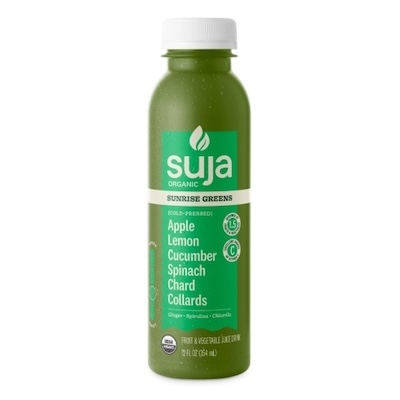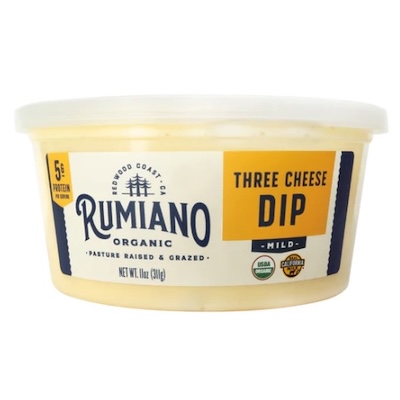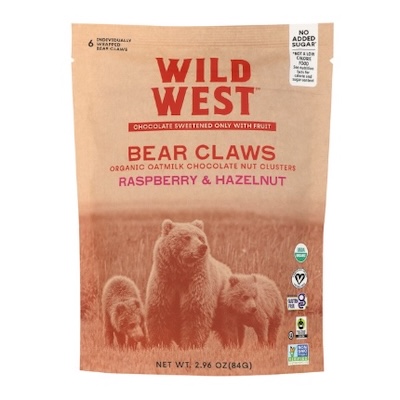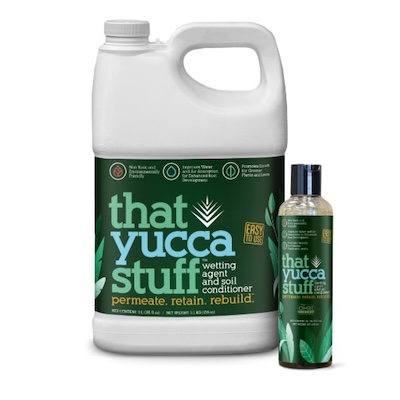
Pesticide Residue Testing Needs to be Dramatically Improved to Help Address Fraud in Organic
(Image courtesy of the International Organic Inspectors Association)
How Organic Insider operates: We accept no advertising, we have no paywalls and we make our newsletters free to everyone because vital information about our industry needs to get out to as many people as possible. Please consider supporting our work and becoming an Organic Insider+ subscriber, whether you are an individual or a company. Thank you so much.
Last week, at the National Organic Standards Board spring meeting, an important recommendation was passed to help root out fraud and assist organic certifiers in becoming more effective with pesticide residue testing.
Currently, USDA-accredited organic certifiers must annually test products from at least 5% of the organic farms and businesses they certify for pesticide residues and other prohibited substances, and a widely used pesticide residue test employed by organic certifiers is called QuEChERS (Quick, Easy, Cheap, Effective, Rugged, Safe).
Unfortunately, the QuEChERS method, which serves as a somewhat one-size-fits-all test, is anything but.
In 2011, the USDA even acknowledged this when it said, “The NOP recognizes that not all registered pesticides can be reliably determined using the QuEChERS method.”
Additionally, when it comes to the Prohibited Pesticides for NOP Residue Testing, glyphosate — the most ubiquitous herbicide in the world and one that has likely contaminated the organic supply chain more than any other chemical — is not listed.
“Testing deployment to verify integrity needs to be improved; the NOP documents, related to testing, were generated more than ten years ago and are long overdue for a revision,” said Amy Bruch, a 6th generation farmer at Cyclone Farms in Nebraska and a current member of the National Organic Standards Board (NOSB). “QuEChERS doesn’t have glyphosate, dicamba or others you would expect in a test for feedstuffs for conventional grain producers.”
With the NOSB having passed a proposal to update the training materials for organic certifiers in the NOP Handbook, it now goes to the USDA for its comments and approval.
“With this update, we went into more critical thinking, with instructions and guidance for certifiers,” put forth Kyla Smith, certification policy advisor at Pennsylvania Certified Organic and also a current member of the NOSB. “We are encouraging certifiers to use their resources, such as talking to the lab or extension, to try to determine the best test for the crop, region and time of year. Testing needs to be very specific for each farmer, and most certifiers do not understand just how ineffective QuEChERS really is in many situations.”
ACTION ON THE FEDERAL LEVEL
The issue of pesticide residue testing in organic has also caught the attention of two members of Congress, Senator Pete Ricketts (R-NE) and Senator Tina Smith (D-MN), and last month, they introduced the Organic Imports Verification Act of 2025 (OIVA).
This bill, among other things, would develop and regularly update risk-based protocols for determining the high-risk status of organic feedstuffs and establish parameters for residue testing.
Implementing pesticide testing reforms on a more broad scale, however, will not only require greater financial resources but people as well.
And with 15,000 USDA employees no longer employed at the agency, something Politico reported on Monday, executing OIVA could potentially be a real challenge.
That being said, Jay Feldman, executive director of Beyond Pesticides, remains optimistic.
“When you stack up conventional versus organic, one is a cost to society — with the poisoning of people and the environment, and exorbitant health care costs — and one adds to society, with health benefits and no adverse effects. It is simply a matter of time before more and more politicians understand this and recognize the common good that organic provides.”
 |
With gratitude, 
Max Goldberg, Founder |
Quick Hits
* The soil-grown, Real Organic Project certified blueberries from King Grove Organic Farm — which are being purchased for the players on the NFL’s Houston Texans — are only available for two more weeks.
* Pulitzer Prize and Emmy Award-winning journalist Anthony Suau on Filming the Chemical Takeover.
* Marci Zaroff, founder & CEO of ECOfashion Corp, was named a 2024 Entreprenista 100 Award Winner.
* Guayakí is now Yerba Madre, and BeyondSKU is now BeyondCPG.
* Ocean’s Halo has launched a petition to remove plastic in seaweed snacks.
* Center for Food Safety has released Microbiomes Matter — a report that sheds light on the crucial role the microbiome plays in human health, agriculture and soil ecosystems.
* Peruvian organic ginger grower, La Grama, released its 2024 Impact Report.
* Let Them Be Naked, a documentary about the presence of toxic and often harmful chemicals in our clothing, will be screening online for free this Mother’s Day weekend, May 8-11.
* Tufts University’s Timothy Wise on Mexico’s GMO corn ban and the trade ruling that ignored evidence of genetic contamination.
* Coyuchi shows why it’s so hard to source U.S. organic cotton.
* The rise of the ‘crunchy teen’ wellness influencer.
New Organic Products
Sunrise Greens from Suja Organic
Suja Organic has just expanded its green juice line-up with the introduction of Sunrise Greens. Containing ingredients such as collard greens, spirulina, chlorella, spinach, cucumber and apple, it offers 1.5 servings of fruits and vegetables. Available on the company's website, in addition to retailers such as Target, Kroger and Albertsons. USDA certified organic, gluten-free and no added sugar.Three Cheese Dip from Rumiano Organic
New from Rumiano Organic is a Three Cheese Dip. A balanced blend of Monterey Jack, cheddar and Parmesan cheeses, it is made with milk from from small family farms where cows are pasture raised and grazed year-round. USDA certified organic, containing 5g of protein per serving and currently available at select natural foods stores nationwide.Bear Claws from Wild West Chocolate
The Bear Claws from Wild West Chocolate come in three varieties -- huckleberry & cashew, almond & sea salt, and raspberry & hazelnut. These nut clusters are sweetened only with fruit, and there is no added sugar. USDA certified organic, gluten-free, fair trade and plant based.That Yucca Stuff™ from Hungry Planet Organics
New from Hungry Planet Organics is That Yucca Stuff™, an eco-friendly soil conditioner for home gardeners designed to enhance plant health, improve soil structure, promote sustainable growth, and allow water and air to permeate more effectively. Made from 100% certified organic ingredients, including 97% yucca extract, 2% citric acid and 1% humic acid, it is OMRI-approved for organic production and contains no synthetic additives or chemicals.
Weekly News Summaries

USDA Finalized Revision to Federal Milk Pricing Regulations, Organic Dairies are Not Happy
By Marcia Brown
The current system effectively requires organic dairy producers to subsidize their conventional counterparts, said Adam Warthesen, vice president of government and industry affairs at Organic Valley. He also believes that costs for organic dairy farmers will go up because of the new pricing structure.

Study Links Organic Food Consumption to Better Cognitive Function in Older Adults
By Eric W. Dolan
Older adults who eat more organic food tend to have better cognitive performance, according to a new study published in the European Journal of Nutrition.

The U.S. has approved Genetically-Engineered Pigs for Food
By Antonio Regalado
Tragic. And don't expect GMO labels for these CRISPR, genetically-engineered pigs.

Friends of the Earth Report: The Toxic Impact of Conventional No-Till Agriculture on Soil, Biodiversity and Human Health
Based on a first-of-its-kind analysis of USDA data, the report finds that most no-till systems are so heavily dependent on herbicides to manage weeds that a staggering 1/3rd of total annual pesticide use in the U.S. can be attributed to no-till corn and soy production alone.

In California's Agriculture Heartland, the Watsonville Community Rallies Against Pesticides
By Brooke Kinebrew
Community members in Watsonville and across Santa Cruz County are raising their voices, calling for change in how pesticides are used near homes and schools. American labor leader Dolores Huerta is joining the fight.

Supreme Court Takes on Earth's Best and Whole Foods Market in Case over Autism Claim
By Megan Butler
The Supreme Court agreed to decide whether Hain Celestial and its retailer, Whole Foods Market, will face a new trial over claims that trace amounts of heavy metals in baby food cause autism in children.

Gene-Edited Canola Just Received USDA "Approval"
By Marc Zienkiewicz
The USDA just declared that this GMO 2.0 plant does not need to be regulated and can move forward with commercialization. Not good.

Survey: 74% of Respondents Consider Organic Ingredients Important in Personal Care Products
By Cassandra Stern
New data reveals a sharp disparity between consumers’ strong desire for organic ingredients and their distrust of voluntary labels, demonstrating a gap in the market for beauty brands.

Organic Food Sector in France is Shrinking -- Who is to Blame?
By Alice Bergoënd
Inflation, limited access to organic foods, and a growing return to conventional farming are fueling a slump in France’s organic market.
Want to share this newsletter on social media? You can use this link: Newsletter Link
The material in this newsletter is copyrighted and may be reprinted by permission only. All requests must be in writing. Please use our contact form to request republication rights.
Newsletter Archive
Quick Hits
* The soil-grown, Real Organic Project certified blueberries from King Grove Organic Farm — which are being purchased for the players on the NFL’s Houston Texans — are only available for two more weeks.
* Pulitzer Prize and Emmy Award-winning journalist Anthony Suau on Filming the Chemical Takeover.
* Marci Zaroff, founder & CEO of ECOfashion Corp, was named a 2024 Entreprenista 100 Award Winner.
* Guayakí is now Yerba Madre, and BeyondSKU is now BeyondCPG.
* Ocean’s Halo has launched a petition to remove plastic in seaweed snacks.
* Center for Food Safety has released Microbiomes Matter — a report that sheds light on the crucial role the microbiome plays in human health, agriculture and soil ecosystems.
* Peruvian organic ginger grower, La Grama, released its 2024 Impact Report.
* Let Them Be Naked, a documentary about the presence of toxic and often harmful chemicals in our clothing, will be screening online for free this Mother’s Day weekend, May 8-11.
* Tufts University’s Timothy Wise on Mexico’s GMO corn ban and the trade ruling that ignored evidence of genetic contamination.
* Coyuchi shows why it’s so hard to source U.S. organic cotton.
* The rise of the ‘crunchy teen’ wellness influencer.




